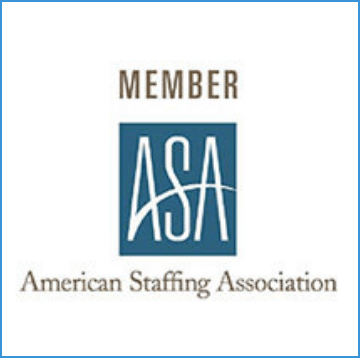Speech-Language Pathologist (SLP)
Speech-language pathology as a profession is expected to grow by 29% between 2020 and 2030. If you’re already a speech-language pathologist or considering studying to become one, that’s great news for you!
SLPs enjoy flexibility in the setting they choose to work in, whether it is schools, private practice, rehabilitation centers, hospitals, or outpatient clinics.
At TheraEx Staffing, we are a healthcare professional-owned business. We understand your concerns in the workplace; we know what makes you tick! That’s why so many speech-language pathologists trust us and the reputation we’ve built. If you’re an SLP or in the process of becoming one, and you are looking for a rewarding and flexible career, we’d love to talk!
What Does a Speech-Language Pathologist Do?
Speech-language pathologists diagnose and treat speech, language, and swallowing disorders. Communication and swallowing disorders have a range of causes, including stroke, hearing loss, developmental delays, cleft palate, autism, Parkinson’s disease, and brain injury.
Tasks speech-language pathologists perform include:
- Evaluating speech, language, swallowing difficulty
- Identifying the best options for treatment
- Putting together customized treatment plans which address the specific needs of the individual
- Helping their children or adult patients to strengthen their swallowing muscles
- Teaching patients how to make sounds and increase fluency
- Providing patients and their families with strategies to effectively cope with speech and swallowing disorders


Where Do Speech Pathologists Work?
Speech-language pathology is an ideal profession for many individuals because of its flexibility. There are a variety of settings in which SLPs can choose to work:
- Schools – Speech-language pathologists commonly work in K-12 schools (about 53%). It is very common to travel between schools throughout the week. Some SLPs (about 3%) even work at universities to help college-age students needing speech therapy.
- Private Practice – About 19% of SLPs work in private practice; this allows entrepreneurial SLPs with flexibility but also requires business management skills.
- Hospitals, Outpatient Clinics, Rehabilitation Clinics & Residential Healthcare Facilities – According to ASHA, about 39% of speech pathologists are known as medical speech-language pathologists. Medical SLPs work in hospitals, outpatient clinics, rehabilitation facilities, as well as residential healthcare facilities.
What Does a Medical Speech-Language Pathologist Do?
Medical speech-language pathologists diagnose and treat speech, language, and swallowing disorders. Medical SLPs often work with patients who have suffered brain damage due to a stroke, seizure, or cancer. These crucial professionals can also work with chronic disease sufferers or people who’ve undergone trauma and have a communication disorder as a result.
Medical speech-language pathologists assess, diagnose, and create individualized treatment plans for patients. Treatment is highly varied and can even include things like diet modifications or prescribing a speech-generating device.
Start your new Speech-Language Pathologist career with a TheraEx recruiter today!
How Much Impact Can Speech-Language Pathology Have on Young Children?
In short, a whole lot! Between birth and the age of three, children will begin to build critical skills in thinking, observation, problem-solving, and communication. Of these, communication becomes one of the most obvious competencies since it can be measured based on direct interaction. Communication also becomes critical to enhancing the other developmental skills that a child typically acquires at a very young age.
Despite the importance of communication, many parents realize too late that they neglected to encourage their child’s interpersonal skills. Without this critical development push, pre-literacy education, preschool, meeting new people, and even achieving partial independence are all much more difficult. If children do not receive the communicational stimulation they need by the age of three, they may have a harder road ahead of them overall.
For these reasons, speech-language pathologists can play an integral role in a developing child’s life. With a speech therapist’s help, a child can strengthen their relationships with the people around them and begin building a pathway towards deep learning and eventual maturity.
Frequently Asked Questions
How Much Does a Speech-Language Pathologist Make?
According to the U.S. Bureau of Labor Statistics, the median annual wage in 2020 for speech-language pathologists was $80,480.
What Does a Speech-Language Pathologist Treat?
Speech-language pathologists treat a wide range of communication, speech, and language disorders in people of all ages. SLPs can help with both cognitive and social communication problems. Speech therapists can help individuals who are unable to speak due to stroke, brain injury, or other causes. They can also successfully treat people who have difficulty with tone or pitch, rhythm or fluency, like stuttering. SLPs also treat swallowing disorders.
How Do You Become an SLP?
While requirements vary state to state, you typically need at least a master’s degree to become a speech-language pathologist.
Can Speech-Language Pathologists Work as a Traveling Pathologist?
Yes! Speech-Language Pathologists (SLPs) can work in travel positions. These individuals can work in hospitals, care centers, emergency facilities, and other medical offices in a variety of care settings.
Where Do Most Speech Therapists Work?
Slightly over half of speech-language pathologists work in schools, but many work in hospitals and other healthcare facilities, including outpatient and rehab centers.
Why Should Speech Therapists Choose TheraEx?
TheraEx Staffing specializes in placing some of the best, most highly trained speech-language pathologists in roles with some of the top hospitals, clinics, and rehabilitation centers in the country.
Here are some of the reasons SLPs choose to work with TheraEx:
- We’re healthcare-professional owned. That means we know where you’re coming from and what your concerns are.
- We work nationally. Although we’re based in California, we place talented individuals all around the country.
- We offer bonus opportunities. Sign-on bonuses, referral bonuses, loyalty bonuses, completion bonuses… It pays to work with us.
- We utilize smart technology. That makes logging in to view your payroll and pay stubs efficient and simple.
- We make the credential process easy. Our in-house credential staff makes it simple and quick.
Want a speech-language pathology job that prioritizes your needs and wants? Get in touch with a member of our TheraEx Staffing team today and see why we’re trusted by so many SLPs and healthcare professionals in California and across the country.






